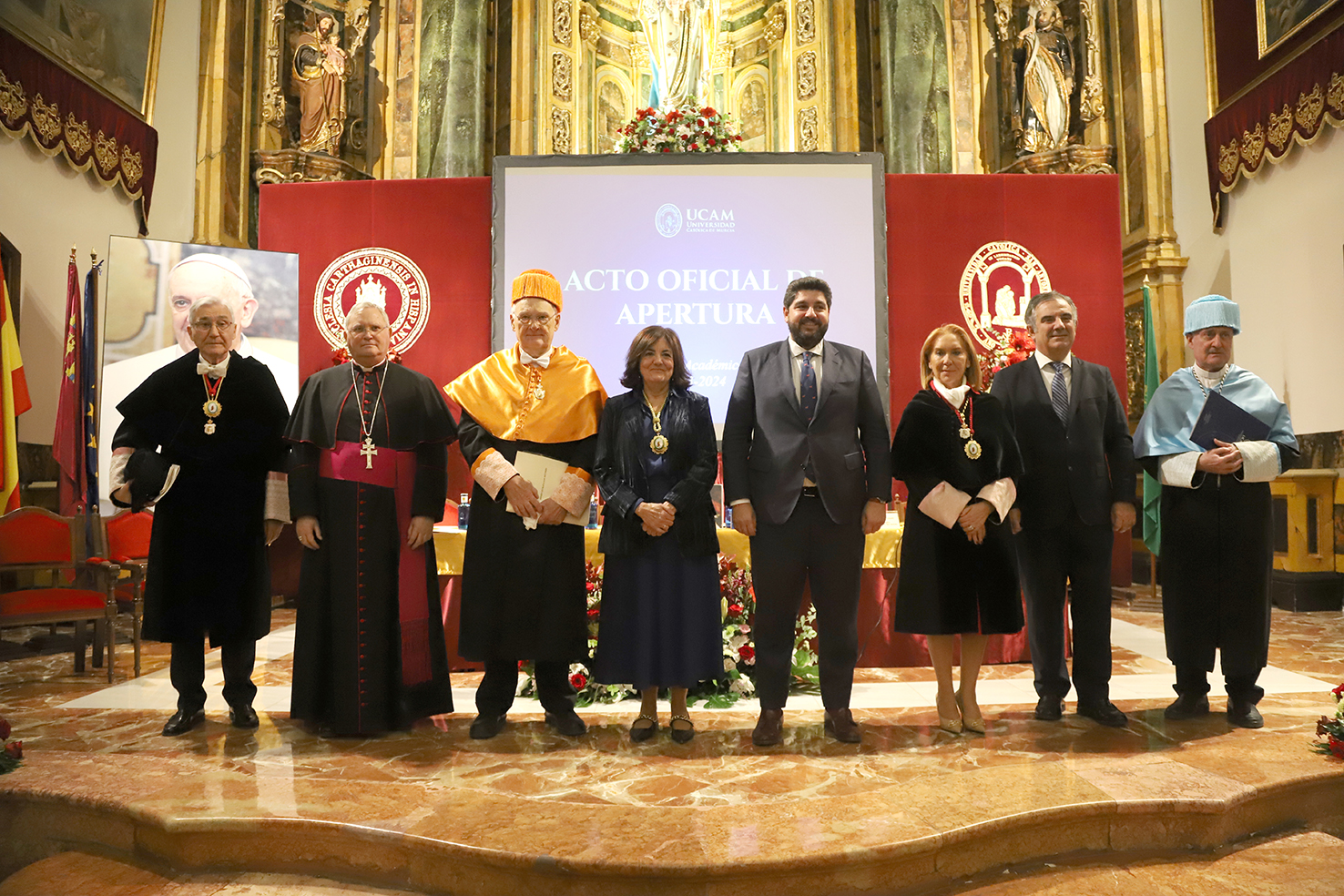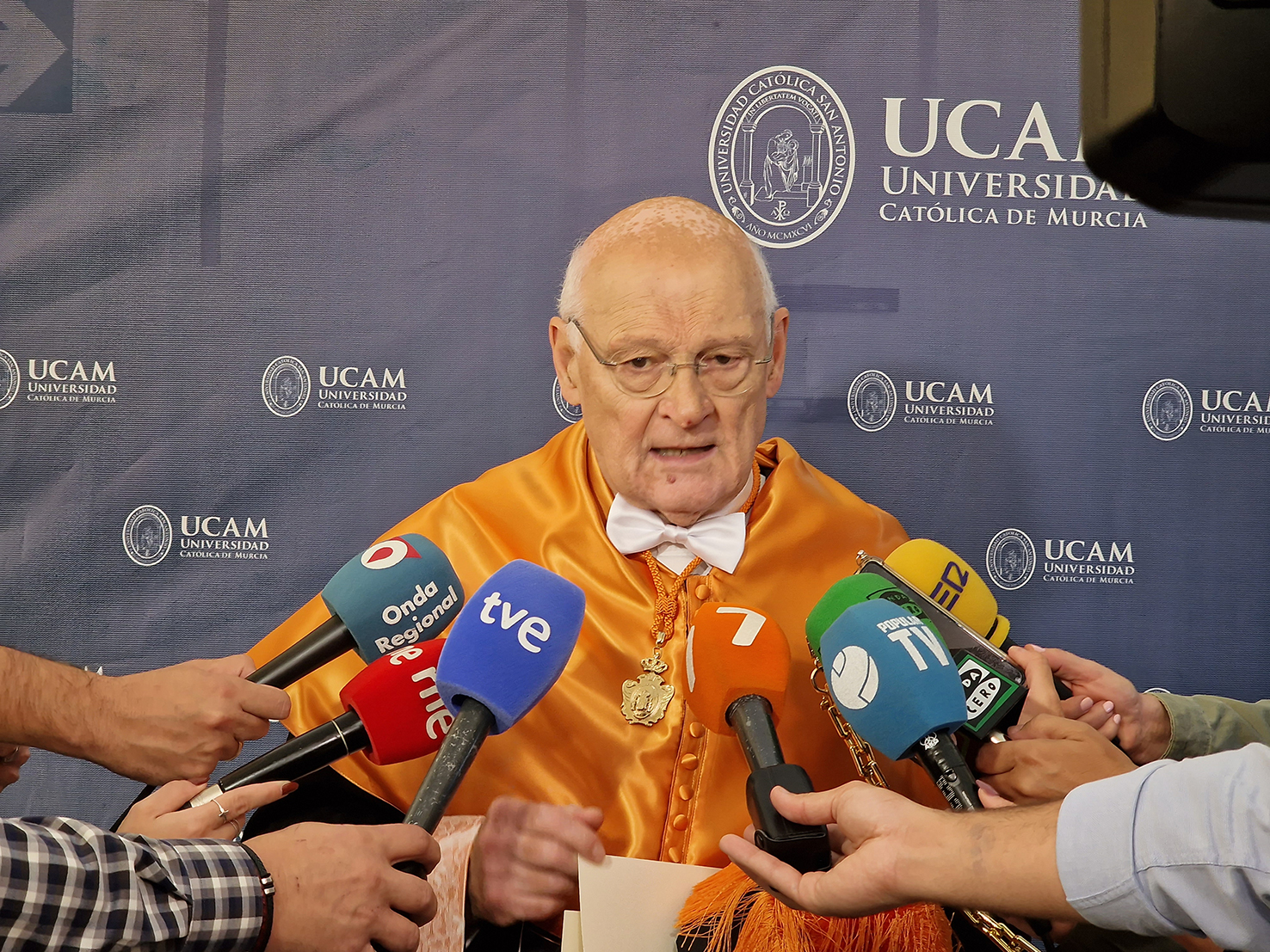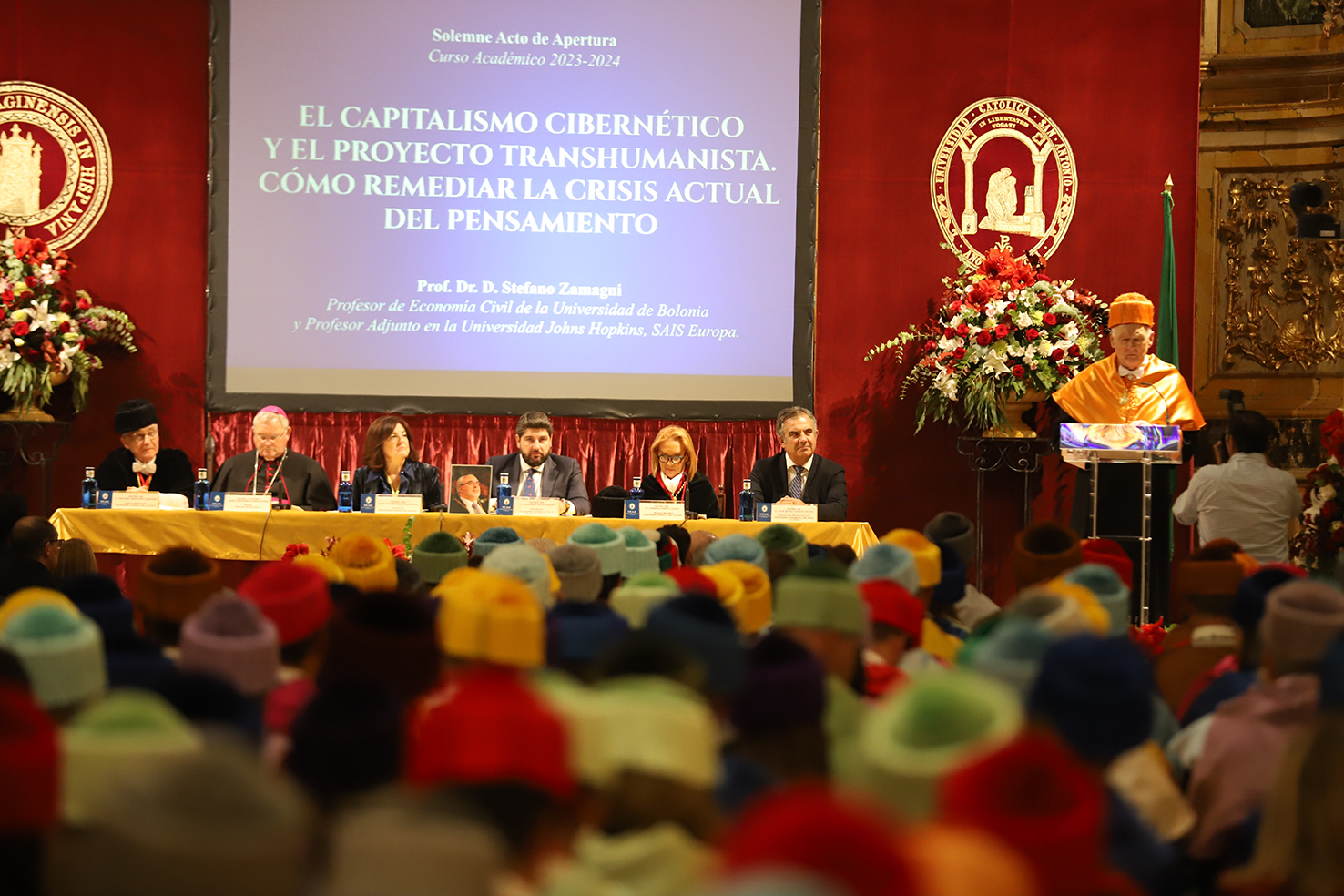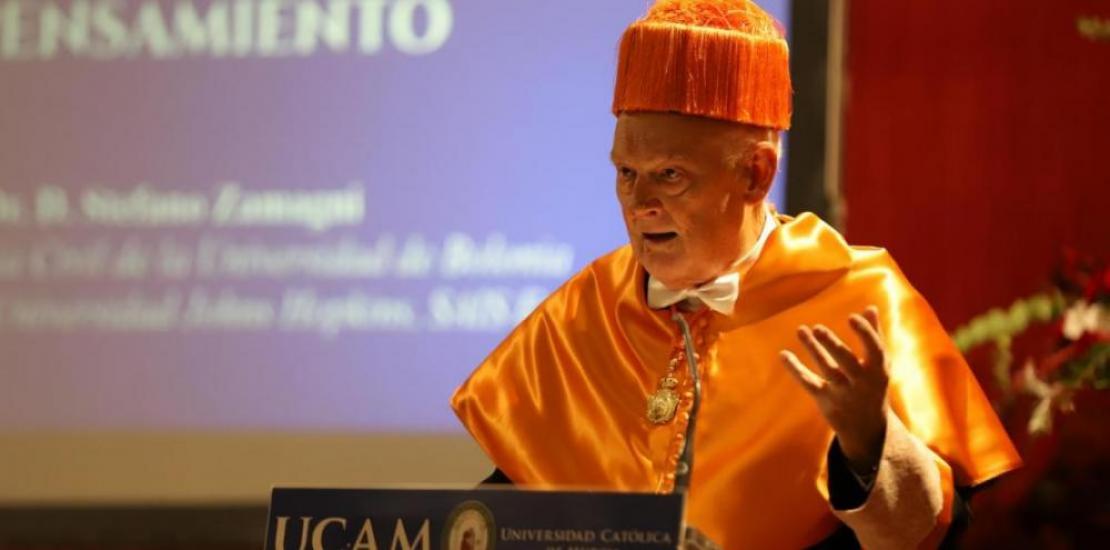Ethics in the face of transhumanism: the role of the Catholic universities
Stefano Zamagni, Civil Economics lecturer at the University of Bologna and Adjunct Professor at Johns Hopkins University (SAIS Europe) delivered the Opening Lecture at the UCAM Solemn Opening Ceremony of the Academic Year 2023-2024.
Have you considered the ethical implications of today's advances in technology? Artificial Intelligence is on the public eye today. The new lines of technological development bring advances which will lead to the so-called fourth industrial revolution in the short term.
The ways in which we work will change. The very meaning of work tends to be transformed, but do we really question what the consequences of this process will be?
This topic gave the whole UCAM community much food for thought at the Solemn Opening Ceremony of the UCAM Academic Year 2023-2024. Economist, lecturer at the University of Bologna and adjunct professor at Johns Hopkins University (SAIS Europe), Dr. Mr. Stefano Zamagni, presented his Opening Lecture 'Cybernetic Capitalism and the Transhumanist Project. How to solve the current thought crisis,' from a philosophical perspective which questions the ethics of these developments.

Official Opening Ceremony of the Academic Year 2023/24 of the Universidad Católica de Murcia
His speech, focused on the current thought crisis, raises interesting questions connected to social and economic reality. In this article we highlight some of the conclusions the lecturer commented on, and which impacted our academic community.
As Dr. Zamagni explained, transhumanism holds as a fundamental hypothesis which states that, by 2050, human beings will be obsolete. Functions which have been attributed to humans for millennia will be carried out by machines.
In addition, he also stressed the difference between the robotisation which has been taking place up to now and that which is beginning with artificial intelligence:
‘With automation, robots replaced workers' arms; artificial intelligence is intended to replace their minds.’ We thus find ourselves with 'robots' which not only take on an executing role by relieving the heavy workloads in industry, but also become the minds behind ideas, decisions and, ultimately, social and economic evolution.
‘With automation, robots replaced workers' arms; artificial intelligence is intended to replace their minds.’
A priori, transhumanism would seem just another school of thought which may or may not evolve over time. However, if we limit ourselves to the factual realm, many of these changes are already taking place right now. In fact, the first attempts at stem cell experimentation have already been developed in the United States. Neurons were extracted from them, processed and reinserted into microchips in the cerebral cortex of volunteers. The result was a success, but the experiment was stopped by the US authorities for going beyond the limits allowed. We are talking about a trend which focuses on technical advances, but not on the ethical and human implications of these advances.

Stefano Zamagni speaks to the media.
Transhumanism, based on the current of utilitarianism, defends evolution on the basis of its utility. According to this line of thinking, if something is useful, it is worth developing, even if its long-term consequences may be detrimental to human beings. It does not distinguish between right and wrong.
Such thinking is aggravated, in the first place, by Singularism, of which Zamagni stated:
‘Singularism goes a step beyond individualism, which makes young people live as if their community did not exist, being in contact with it but without relationship. This is also the case in political life.’
On the other hand, the crisis of Catholic thought also comes into play. The lecturer spoke of the need to update the Social Doctrine of the Church in order to keep it relevant in this new age.
Neohumanism: the value of existence and its harmony
Faced with such a situation, Professor Zamagni urged us to take action. Transhumanism is based on the idea that there is no a priori truth or objective truth. Using the concept of fake-true, he highlighted the danger of assuming lies as truth in the absence of a countercurrent to refute transhumanist claims.

The Opening Lecture was given in the Temple of the Monastery of Los Jerónimos.
He raised the need for Catholic universities such as UCAM to work to update and promote new lines of thought adapted to our time. Lines of thought linked to the Neohumanist current, which proposes progress within ethics, the value of the human being and the love of God.
He closed his speech this way, making everyone reflect, both the UCAM teachers and service staff, but also the authorities who attended the event.
And now we ask, can we really speak of human progress if we set aside the value of being, the connection which brings us together and the search for the common good?




